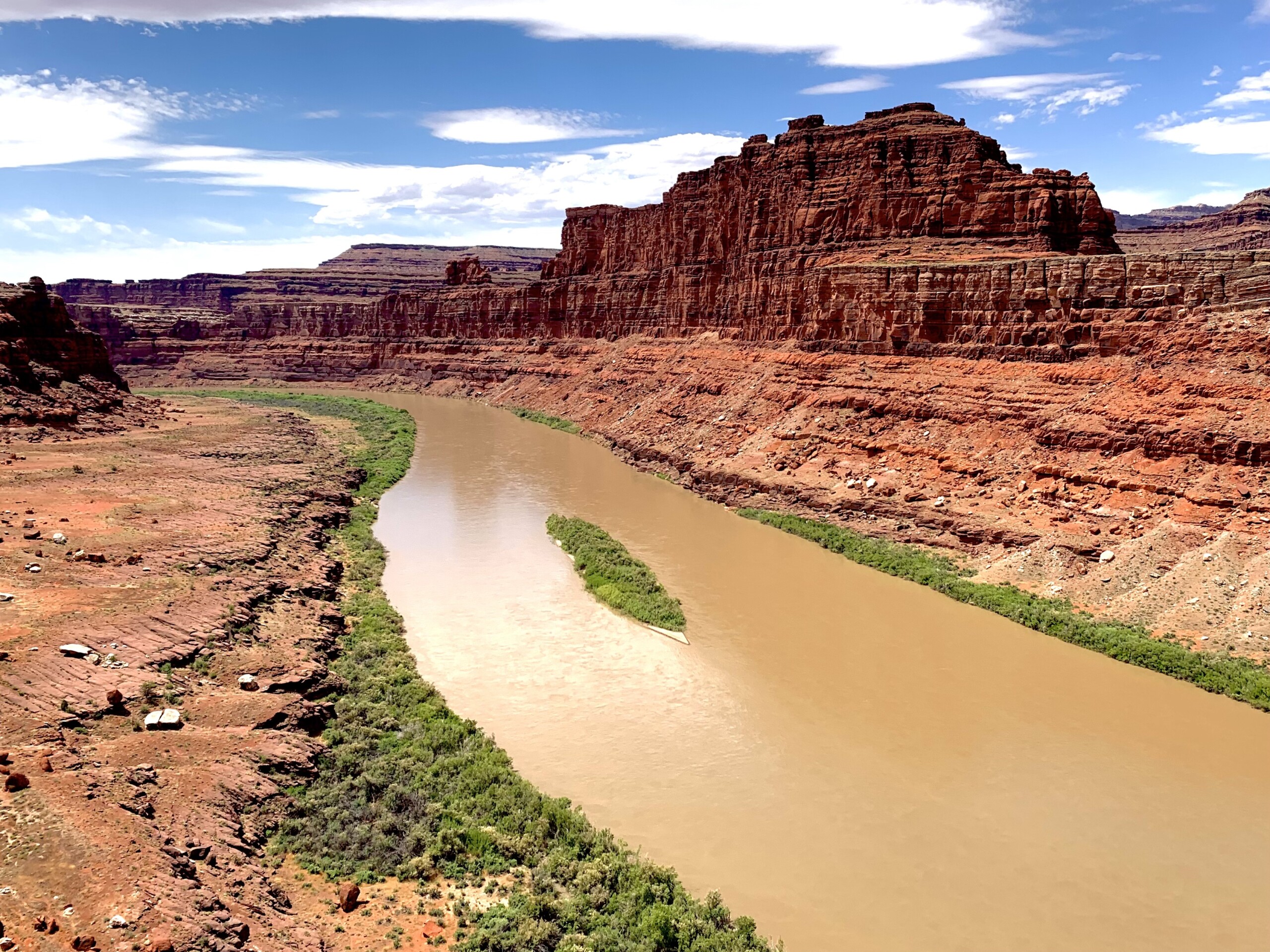Today, the Great Basin Water Network and Living Rivers released the following statements after the Bureau of Reclamation publicized its August 24-Month Study, which will trigger a Tier 1 Shortage Declaration: 613,000 acre feet worth of cuts in the Lower Basin States and Mexico on January 1, 2024.
While the schedule of cuts for 2024 will not be as large as 2023’s Tier 2a cuts, Reclamation’s 24-Month Study underscores that the recent wet winter in the Colorado River Basin will not be enough to boost Lake Mead out of shortage criteria –– despite snowpacks that delivered water supplies that were nearly 150 percent of average across the Colorado River Basin. The report highlights how climate change is upending our normal runoff cycles. Estimated inflows into Lake Powell for August are only 114 percent of the current 30-year average. Total storage in the Colorado River Basin, according to Reclamation in July, is around 11 percent higher than the beginning of the year. Current reservoir storage equates to about two years’ worth of water.
“Climate change gives us very little breathing room to refill reservoirs,” said Kyle Roerink, executive director of Great Basin Water Network. “Look at the history. Elevations are basically back to where we were two years ago. What’s it going to take to bring us back to the brink: not much. More pain is coming for plant life, wildlife and human life, and I have little faith that water managers will take the proper long-term course to mitigate the hardship.”
Despite the recent financial investments from the federal government in the Colorado River Basin, money cannot solve all of our problems. Changing rates of sublimation, evaporation and soil-moisture deficits have dramatically altered runoff patterns in addition to increased aridity brought upon by anthropogenic climate change. New peer-reviewed research suggests the following:
- A 10.3% reduction in Colorado Basin’s present-day natural flow exists due to anthropogenic warming despite vegetation response to CO2
- Anthropogenic warming reduced Colorado Basin’s natural flow by roughly the storage of Lake Mead during the ongoing megadrought (2000–2021)
- Greater aridification in snowpack regions is causing water losses to occur roughly twice as fast compared to non-snowpack region.
Considering those factors, the news about smaller cuts is not a relief nor is it an endorsement of the current management regime between officials at the federal, state and local levels.
“My opinion hasn’t changed in 20 years: The system is going to eventually crash,” said John Weisheit, conservation director of Living Rivers. “The nation’s top climate scientists predicted this 40 years ago. The train will arrive on schedule. Predictions from Reclamation about the next two years don’t mean a thing.”
Living Rivers and Great Basin Water Network are today submitting comments to the Bureau of Reclamation relating to the Re-consultation of the 2007 Interim Guidelines. We will continue to encourage the draining/decommissioning/reimagining of Lake Powell while demanding that federal and state water managers begin respecting and recognizing climate change.

